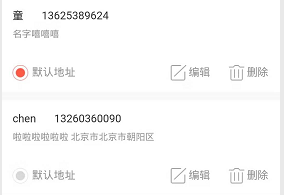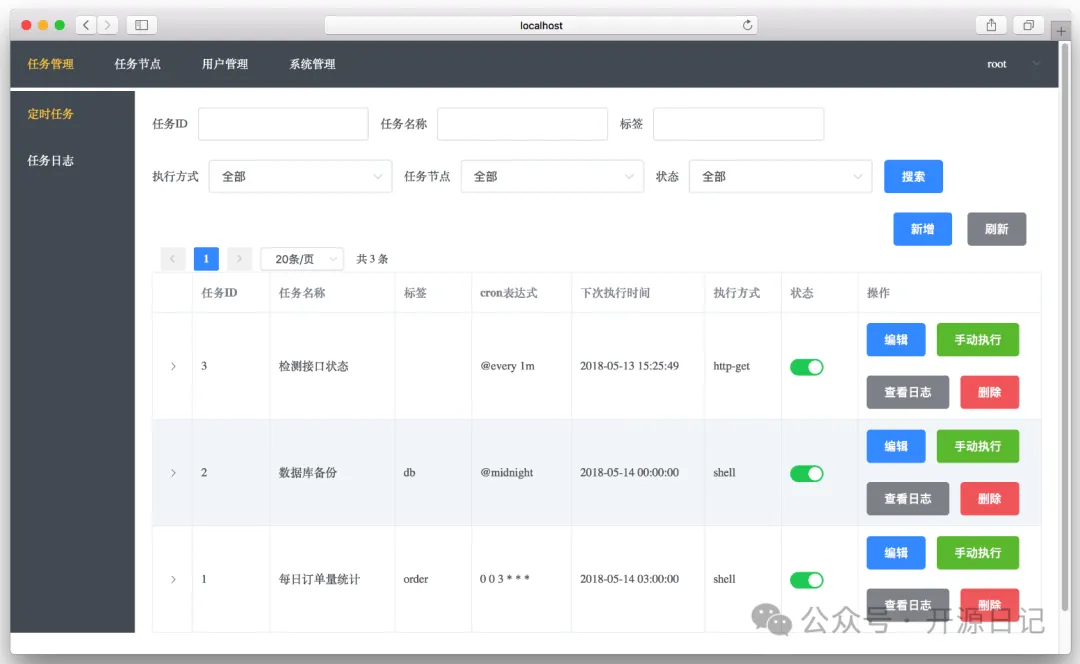目录
一、HttpGET二、HTTPPOST三、WebSocket四、移植Egret的http和websocket到cocos
CocosCreator版本2.3.4
一、HttpGET
Get方式,客户端请求本机地址3000端口,并携带参数url和name,服务端收到后返回name参数。
cocos客户端:
//访问地址
let url = \"http://127.0.0.1:3000/?url=123&name=321\";
//新建Http
let xhr = new XMLHttpRequest();
//接收数据
xhr.onreadystatechange = function () {
if (xhr.readyState == 4 && (xhr.status >= 200 && xhr.status < 400)) {
var response = xhr.responseText;
console.log(response);
}
};
//错误处理
xhr.onerror = function(evt){
console.log(evt);
}
//初始化一个请求,GET方式,true异步请求
xhr.open(\"GET\", url, true);
//发送请求
xhr.send();
为了方便测试,在本机用nodejs搭建一个简易服务器,在收到访问后,返回请求参数中的name值。
nodejs服务端:
var app = require(\'express\')();
var http = require(\'http\').Server(app);
app.get(\'/\', function(req, res){
//设置允许跨域的域名,*代表允许任意域名跨域
res.header(\"Access-Control-Allow-Origin\",\"*\");
//允许的header类型
res.header(\"Access-Control-Allow-Headers\",\"content-type\");
//跨域允许的请求方式
res.header(\"Access-Control-Allow-Methods\",\"DELETE,PUT,POST,GET,OPTIONS\");
res.send(req.query.name);
});
http.listen(3000, function(){
console.log(\'listening on *:3000\');
});
运行nodejs的服务器,并运行cocos代码,cocos中
console.log(response); //输出为321
二、HTTPPOST
客户端请求服务器,携带参数name,服务端收到后返回name。
cocos客户端:
let url = \"http://127.0.0.1:3000/\";
let xhr = new XMLHttpRequest();
xhr.onreadystatechange = function () {
if (xhr.readyState == 4 && (xhr.status >= 200 && xhr.status < 400)) {
var response = xhr.responseText;
console.log(response);
}
};
xhr.onerror = function(evt){
console.log(evt);
}
xhr.open(\"POST\", url, true);
xhr.setRequestHeader(\"Content-Type\", \"application/x-www-form-urlencoded\");
xhr.send(\"name=123\");
nodejs服务端:
var app = require(\'express\')();
var http = require(\'http\').Server(app);
var querystring = require(\'querystring\');
app.post(\'/\', function(req, res){
//设置允许跨域的域名,*代表允许任意域名跨域
res.header(\"Access-Control-Allow-Origin\",\"*\");
//允许的header类型
res.header(\"Access-Control-Allow-Headers\",\"content-type\");
//跨域允许的请求方式
res.header(\"Access-Control-Allow-Methods\",\"DELETE,PUT,POST,GET,OPTIONS\");
var body = \"\";
req.on(\'data\', function (chunk) {
body += chunk; //一定要使用+=,如果body=chunk,因为请求favicon.ico,body会等于{}
console.log(\"chunk:\",chunk);
});
req.on(\'end\', function () {
body = querystring.parse(body);
console.log(\"body:\",body);
res.send(body.name);
});
});
http.listen(3000, function(){
console.log(\'listening on *:3000\');
});
cocos输出
console.log(response); //输出123
三、WebSocket
cocos客户端代码:
连接本地服务器127.0.0.1:8001,连接成功后发送一段字符串,并将接收的字符串打印
let ws = new WebSocket(\"ws://127.0.0.1:8001\");
ws.onopen = function (event) {
console.log(\"Send Text WS was opened.\");
};
ws.onmessage = function (event) {
console.log(\"response text msg: \" + event.data);
};
ws.onerror = function (event) {
console.log(\"Send Text fired an error\");
};
ws.onclose = function (event) {
console.log(\"WebSocket instance closed.\");
};
setTimeout(function () {
if (ws.readyState === WebSocket.OPEN) {
console.log(\"WebSocket start send message.\");
ws.send(\"Hello WebSocket, I\'m a text message.\");
}
else {
console.log(\"WebSocket instance wasn\'t ready...\");
}
}, 3000);
nodejs服务端:
接收字符串成功后,打印接收的数据,并返回一段字符串。
var ws = require(\"nodejs-websocket\");
console.log(\"开始创建websocket\");
var server = ws.createServer(function(conn){
console.log(\"连接成功\");
conn.on(\"text\", function (obj) {
console.log(\"接收:\",obj);
conn.send(\"message come from server\");
})
conn.on(\"close\", function (code, reason) {
console.log(\"关闭连接\")
});
conn.on(\"error\", function (code, reason) {
console.log(\"异常关闭\")
});
}).listen(8001)
console.log(\"开始创建websocket完毕\");
测试结果,客户端浏览器输出:

nodejs端输出:

四、移植Egret的http和websocket到cocos
因为cocos没有封装工具类,所以直接从Egret移植http和websocket到cocos中使用,还算方便。

以上就是Cocos Creator 的Http和WebSocke的详细内容,更多关于Cocos Creator的资料请关注免费资源网其它相关文章!
© 版权声明
THE END










暂无评论内容